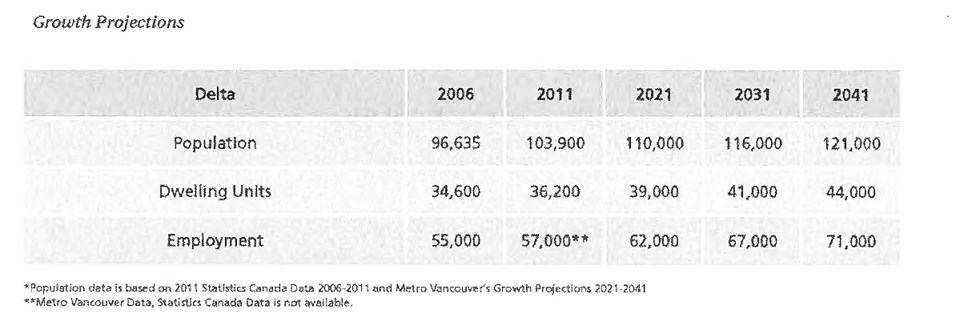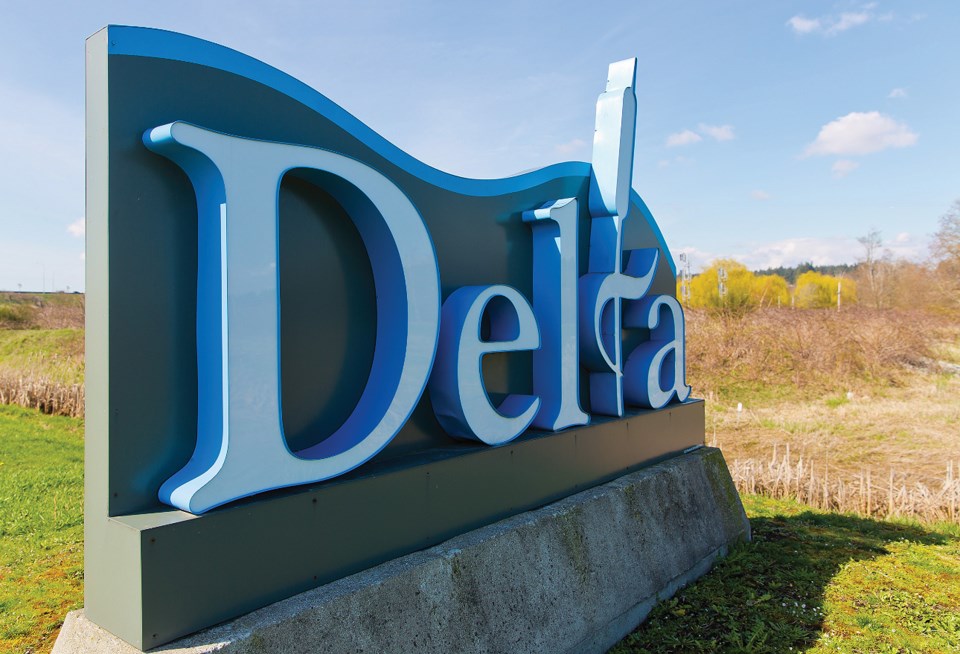Just how many people is Delta supposed to have?
That’s the big question council is trying to figure out as staff look at the right projection for the city.
During a recent discussion on Delta’s regional context statement, which confirms consistency with the Regional Growth Strategy and is included as part of the Official Community Plan, Coun. Dylan Kruger pointed out Delta has had different projections, not meeting any of them.
He said cities have to demonstrate how their plans will work toward accommodating projected growth within the urban containment boundary, and Metro Vancouver has graphs which contain projected population growths between 2006 and 2041. Delta is always falling short.
“While the graph states that by 2021 we should have 110,000 people living here, and the most recent stats we have from 2016 give us a population of 102,000, that’s almost 2,000 people below our 2011 projections which were nine years ago, and 8,000 people short of next year’s projections,” he said.

“Further, the growth projection chart shows that Delta should have 39,000 dwelling units by 2021. We know that today Delta has 35,755 dwelling units. That’s below our 2011 projection from nine years ago of 36,200, and considerably below next year’s target of 39,000. So, it seems to me that we are significantly falling behind on our population growth projections and I’m wondering if this reality is reflected in our statement review,” he added.
Community planning director Marcy Sangret noted that when the regional district produces its growth strategy, which are endorsed by local governments, those numbers aren’t necessarily targets but “best estimates” where growth in the region may choose to locate.
She said while Delta is below the projections, however, a number of housing units have come on stream and the city in certain instances is putting in incentives for developers, but Delta can’t necessarily control the pace which development happens.
“So, while we are below the projections, they’re not targets per say. We have a number of areas that are designated for higher density than what we’re seeing built. We’ll continue to promote density in those areas as appropriate. When we reviewed the regional context statement, while we had noted that we weren’t exactly at the projections, that we were below the projections to some degree, it wasn’t for lack of having identified within our OCP areas where growth can go, including high-density mixed use nodes, urban centres, areas along frequent transit networks, and the city has a number of areas where it put in place incentives to encourage redevelopment,” she explained.
“So, we’re doing the right thing to get redevelopment to happen in the right places. Certainly through initiatives like the mayor’s task force on building permits and development applications, as well as our area plan reviews, we’re looking to expand upon that,” she added.

The Scott Road corridor is one area that could see a further change with the coming of Rapid Bus, while development opportunities exist along 72nd Avenue, Sangret noted.
Sangret also noted that when Metro 2050 comes forward, in a couple of years, the projections will be updated.
Mayor George Harvie noted other communities have benefited from rapid transit, something not available in Delta.
He also noted the projections are simply planning-type numbers rather than a target Delta must achieve.
Council this week received an information memo which note that to keep in line with projections, the city would need roughly 330 units added to the market annually between 2016 and 2041.
Since 2009, Delta has seen construction starts for approximately 388 units on average annually, and between 2009 and 2019 Delta issued a total of 4,270 building permits for new dwelling units.
Council has also approved many projects yet to be built that would result in a further 1,782 new dwelling units.
The memo further notes that since 2010, when secondary suites were approved for single detached dwellings, 3,556 suites have been created.
Council agreed to go over the numbers at an upcoming workshop.



